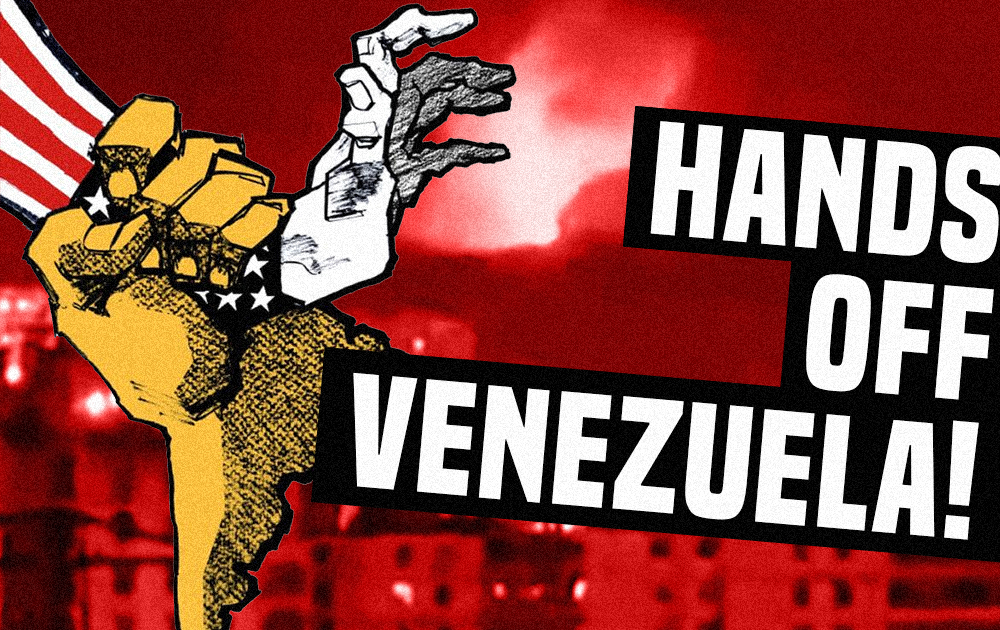Today’s cold-blooded assassination of
Benazir Bhutto in Rawalpindi has once again thrown Pakistan into
political turmoil, less than two weeks before national elections.
Thirty more people have died and 40 injured in the bomb blast after
the assassin blew himself up. Millions of supporters of the Pakistan
Peoples Party are in a state of shock, disbelief and grief. But they
are also angered by this murderous act by the forces of black
counter-revolution.
Thousands have taken to the streets
throughout Pakistan in protest at this outrage. People flocked to the
Rawalpindi General hospital and have been chanting anti-Musharraf
slogans, including describing him as a "dog". The street
protests have also spread, with reports of demonstrations in
Rawalpindi, Islamabad, Karachi, Peshawar, Multan, and Quetta. The
Pakistan army has been put on ‘red alert’ and an emergency
meeting has been convened by Musharaff of top officials to decide the
fate of the forthcoming election. There is a danger that emergency
rule will be re-imposed.
Who benefited from this murder? Those
behind the killing clearly wanted to prevent the victory of the PPP
on 8th January. They are the Pakistani ruling elite, which
has brought the country to ruin. The fact that the assassin was able
to shoot Benazir at close quarter after passing through several
levels of security checks, indicate the involvement of sections of
the security forces. Once again the assassination points to the
Islamic fundamentalists linked to al-Queda, who have close links with
the security forces (ISI) and have stepped up their attacks,
especially since the storming of the Red Mosque in July. Already this
year, nearly 1,000 people have been killed by suicide and armed
attacks.
This whole situation underlines the
counter-revolutionary role of fundamentalism, which despite its
demagogy, carries the banner of black reaction, and is linked by a
thousand threads to the ruling elites of Pakistan, Saudi Arabia, Iran
and elsewhere.
On Benazir’s return on 18th
October, the first assassination attack came at a mass rally the
following day, claiming 140 deaths and 500 injured. Bhutto pointed
her finger at the Islamic groups for the bloody attack. During the
election campaign, attacks have continued, most notably in Peshwar
and Islamabad. Today, minutes before to Benazir’s murder, a
simultaneous attack resulted in four people being shot dead at an
election rally of Naswar Shariff in Islamabad.
The West’s plans and calculations of
"managed transition" are in complete disarray. The American
imperialists had supported General Mushariff, but this role had been
discredited. They were hoping that a "conconciliation" would take
place between him and Benazir. They were hoping that Benazir would
pursue their interests. However, behind Benazir and the PPP stood the
millions of workers and peasants who were yearning for fundamental
change.
"We stand with the people in
Pakistan in the struggle against the forces of terror and extremism,"
said George Bush. But the plans of Washington have now gone up in
smoke. It was their actions (the so-called war on terror) which have
built up the fundamentalists throughout the region. They initially
financed and armed al-Qaeda and their supporters, which has now
fallen to the drug barons and secret services to continue. The wars
in Afghanistan and Iraq have added to the chaos. The imperialists are
in uncharted waters. The UN security council has even called an
emergency session to discuss the assassination. There is a note of
alarm in their statements, fearing that the region could spiral out
of control.
The campaign to postpone the elections
is an attempt to block these pressures welling up in Pakistan for
revolutionary change. Despite Musharrif’s calls for calm, shops and
businesses have been closed and demonstrators have taken to the
streets across Pakistan. Police cars and other vehicles have been set
alight. It is a spontaneous protest against the counter-revolution.
It is defiance against those responsible for the attack and the
beginning of a fight back by the masses.
Whatever the immediate outcome,
including the likely postponement of the national elections, the
masses will seek to push the PPP into power at the earliest possible
moment. They will seek the road of fundamental socialist change by
demanding that the PPP return to its revolutionary roots as the only
way forward. The death of Benazir Bhutto, despite the initial shock,
will act as a spur to the further radicalization the party and the
millions that follow it throughout Pakistan. The assassination will
certainly not break the will of the masses to change society. It will
harden their determination.






